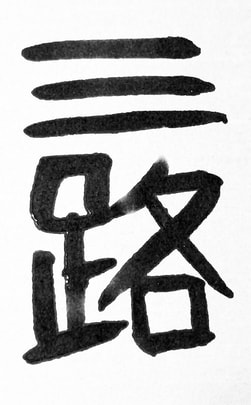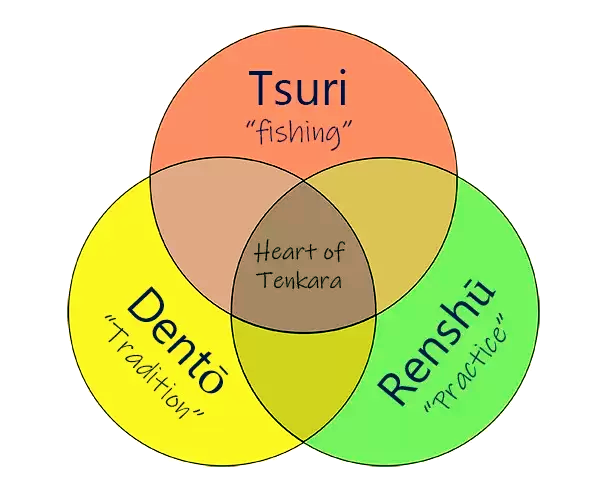Lately, it pains me to witness the casual disregard shown by some individuals towards tenkara. People continue to write articles, comment on social media and mislead others about tenkara. It is unnerving to me and to those who have respect for tenkara as a practice. I am thrilled to see a surge of interest in tenkara among western anglers. However, in the rush of excitement, many have neglected the vital aspect of familiarizing themselves with tenkara's rich history, culture, and the importance of approaching it with respect as a living practice. Today, I would like to revisit an essay I wrote for Tenkara Angler Magazine about the "Three Paths of Tenkara" in July 2020. It is my hope that readers will pause to internalize these principles and recognize tenkara for the amazing gift it truly is, transcending its label as "just a fishing style" and refraining from misusing the term "fishing tenkara" outside the context of mountain streams. Let us start by establishing a few fundamental agreements. Firstly, we can all acknowledge that tenkara is a fishing style characterized by a rod, line, and fly. Secondly, we must recognize that tenkara and Western fly fishing are distinct approaches with unique histories, techniques, and tackle requirements, much like spin cast fishing differs from Western fly fishing, or deep sea fishing diverges from ice fishing. Lastly, it is crucial to respect that tenkara is a gift bestowed upon us from Japan. It would be culturally disrespectful to tarnish this gift by degrading its form and practice. We have been entrusted with its preservation and it's future. In my own meditations on tenkara I have observed what I call "the Three Paths of Tenkara." they are Tsuri (Fishing), Renshū (Practice), and Dentō (Tradition). Each path interacts and informs each other. Together this creates what I refer to as "the Heart of Tenkara." I will keep it this simple for now. I can go on at length another time with regard to where each intersects. I created the Venn diagram below to help you understand.
As we discern each path in our journey, we gain a profound understanding of the heart of tenkara. At different times in our lives, we may find ourselves walking each path. We may find ourselves walking with the influence of the other two paths subtly shaping our experience. Which path or paths do you identify with? I have little control over what others do with tenkara. I wish there was more reverence perhaps? Please do not consider me a "tenkara elitist". I am not telling anyone how to fish tenkara, I am only saying that tenkara is something specific. Words have meaning and we need to have enough respect for tenkara to not let its definition be trivialized or its form be warped and misused. It is a very western idea that believes tenkara needs to have anything added to it. Tenkara is about reducing fishing to its basic form. Anything you add to it is counter productive to this point. We must ask "just because we can add something...does it mean we should?" Peace, love and fishes Dennis
2 Comments
|
TENKARA AS PRACTICEArchives
December 2023
Categories |

